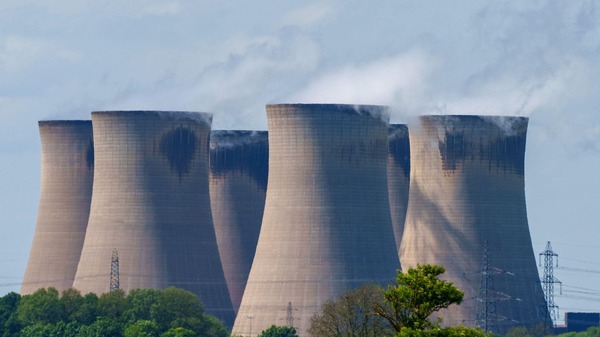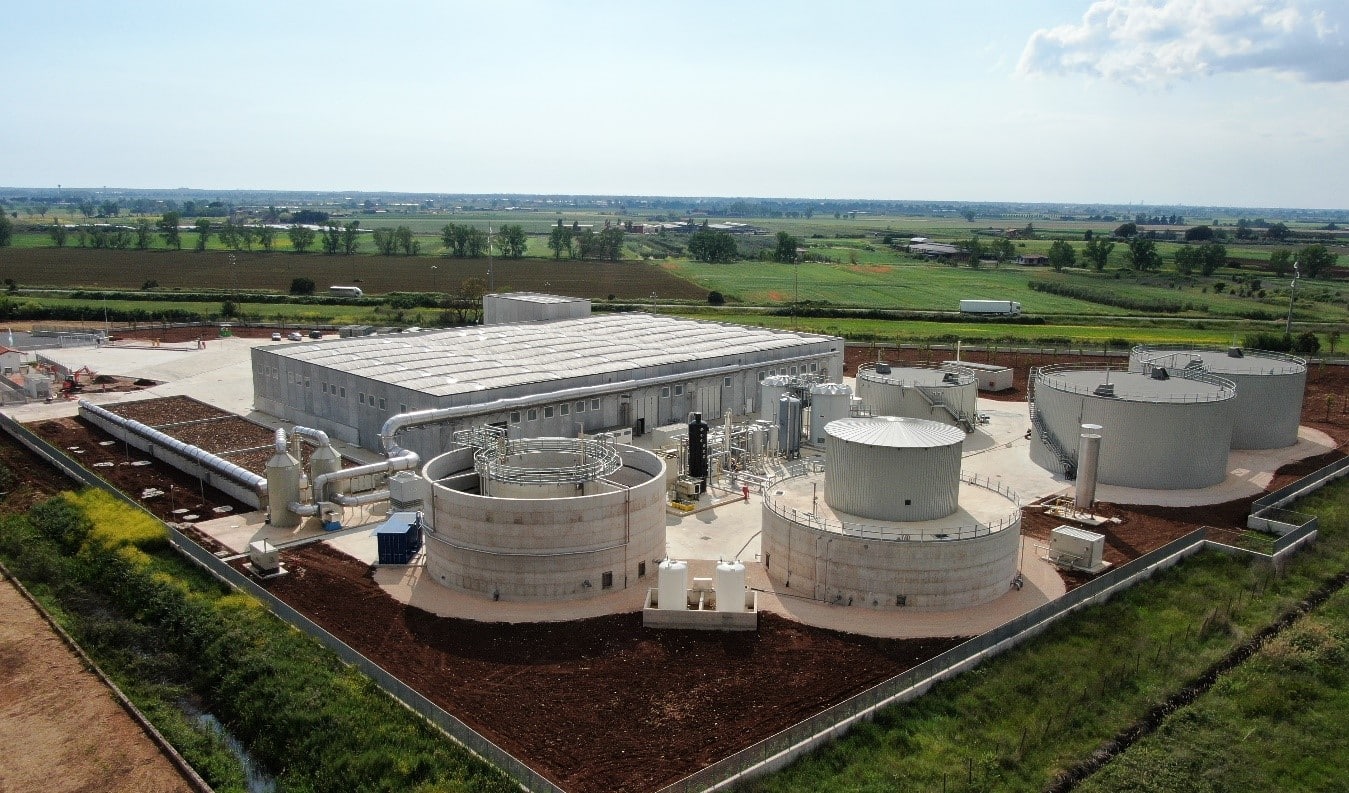The Energy Policy Dimension
- Details
- Written by: J C Burke
- Hits: 142
ADDENDUM: The Energy Policy Dimension:
How the Net Zero and Decarbonisation Agendas Compound the Built Environment Crisis —
and Why Decentralised Bio-Methane CCHP and Urban Integrated Metabolism Represent the Correct Alternative February 2026 | Companion document to: The Deferred Reckoning
Introduction: A Compounding Error
The main report demonstrated that the UK faces an inherited infrastructure maintenance liability of £520bn to over £850bn — the result of generations of political short-termism, deferred maintenance, and misdirected spending. This addendum addresses a further and perhaps more consequential layer of the same problem: that the current energy policy framework, built around Net Zero and Decarbonisation orthodoxy, is now being imposed upon a building stock and infrastructure network for which it is profoundly unsuited.
The consequences are severe. An already creaking built environment is being asked to carry the additional burden of an energy transition designed around assumptions that do not reflect the reality of 30 million ageing buildings, Victorian utility networks, and a construction industry already overwhelmed by the maintenance backlog documented in the main report. The result is not transformation — it is the addition of one very expensive mistake upon another.
The central argument of this addendum: the UK's Net Zero strategy imposes maximum cost and disruption upon minimum-efficiency solutions, whilst ignoring a thermodynamically superior, economically self-funding, and practically deliverable alternative that has been available — and partially operational — for decades.
1. The Built Environment and Net Zero: A Fundamental Mismatch
The UK government's Net Zero strategy for buildings rests on several assumptions, each of which fails to withstand engineering scrutiny when applied to the actual housing and commercial stock described in the main report.
Britain's Built Environment
- Details
- Written by: J C Burke
- Hits: 105
THE DEFERRED RECKONING
Britain's Built Environment: A Century of Under-Investment
An Assessment of Maintenance Failure, Remediation Costs and National Priorities February 2026
Executive Summary
The United Kingdom faces a remediation bill for its built environment that is, in the most candid assessment, colossal. Across housing, water infrastructure, transport networks, health and education estates, flood defences, and civic buildings, decades of deferred maintenance have compounded into an inherited liability now conservatively estimated at £520 billion to over £850 billion. The full figure, when accounting for energy retrofit obligations and climate adaptation, may exceed £1 trillion.
This is not a sudden crisis. It is the slow arrival of bills that were always going to come. Each generation of politicians — and to a degree, each generation of owners — chose the comfort of deferral over the discipline of maintenance. The compound interest on that choice is now due.
This report sets out the scale of that liability by sector, the realistic timescales for remediation, and asks a question that is uncomfortable but legitimate: have successive governments correctly prioritised the stewardship of domestic assets over the projection of spending abroad?
Note on figures: All cost estimates in this report are indicative. They draw on published government data, National Audit Office reports, industry body assessments, and informed extrapolation where official figures are absent or incomplete. They should be treated as orders of magnitude rather than precise projections.
DRAX and Dirty Secrets
- Details
- Written by: J C Burke
- Hits: 93
 DRAX Power Station:
DRAX Power Station:
A 50-Year Testament to Thermodynamic Waste
From Yorkshire Coal to American Wood Pellets: The Persistence of Centralised Inefficiency
A Critical Analysis Based on Direct Experience, 1975-2026
Introduction: An Engineer's Perspective
In 1975, as an undergraduate student pursuing a degree in Building Technology, Finance and Management (1972-1976), I was assigned to an industrial training placement with Norwest Holst in Leeds. My task was to contribute to the estimation & planning programme for the construction of the cooling towers - 114m high (built in phases - now 12 Cooling Towers) at the newly developing DRAX Power Station in North Yorkshire. Those towers, each a massive concrete structure, represented more than mere engineering ambition—they were physical monuments to thermodynamic waste, the unavoidable consequence of the Carnot cycle's limitations when applied to centralised thermal power generation.
At that time, DRAX—along with Eggborough and Ferrybridge coal-fired stations built atop the vast Selby Coalfield—was designed to achieve approximately 22% fuel efficiency in converting coal to electricity for the Central Electricity Generating Board (CEGB). This figure is not a detail; it is the fundamental indictment of the entire enterprise. With 22% efficiency, approximately 78% of the energy content of the coal became waste heat, requiring those eight cooling towers to dump it into the atmosphere. The UK was, in effect, burning five times the coal it would have needed had it pursued decentralised combined heat and power (CHP) systems, which can achieve 80-90% total efficiency by productively using the "waste" heat.
This article examines DRAX's transformation from coal to biomass burning, analysing why this change—despite being lauded as "green"—represents merely a continuation of the original thermodynamic sin, now compounded by international wood pellet transport, forest destruction, and elaborate carbon accounting fraud.
The Original Sin: Engineering Waste into the Foundation
The Carnot Cycle and the Cooling Towers
Those eight/ten cooling towers at DRAX were the engineers' answer to the inescapable reality of the Carnot efficiency limit. In a thermal power station, fuel combustion creates high-temperature steam to drive turbines. The second law of thermodynamics dictates that converting this thermal energy to mechanical work (and thence to electricity) cannot be 100% efficient. The lower the temperature differential between the heat source and the cooling reservoir, the lower the theoretical maximum efficiency.
The Bio-Methane Economy
- Details
- Written by: Sun Earth Energy
- Hits: 159
 The Bio-Methane Economy:
The Bio-Methane Economy:
Transforming Waste into Wealth Across the globe
A New Paradigm for Sustainable Urban Development
The world stands at a critical juncture. Urban populations are expanding rapidly, waste management systems are overwhelmed, energy security remains precarious, and resource efficiency demands immediate action. What if a single integrated solution could address all these challenges simultaneously?
Enter the Bio-Methane Economy—an emerging paradigm that transforms urban waste streams into clean energy while capturing valuable methane resources that would otherwise escape as air pollutants, creating circular nutrient cycles, and delivering reliable power, heating, and cooling to city centres through decentralised Combined Cooling, Heating and Power (CCHP) systems.
This is not theoretical. The technology exists. The economics work. What's needed now is vision, investment, and political will. Innovative investment structures, supported by Investor's commitment to global clean energy leadership and the unique partnership, aim to deploy this proven solution across global nations.
Understanding the Bio-Methane Economy
The Three Pillars
The Bio-Methane Economy rests on three integrated pillars that create a virtuous cycle of resource efficiency:
1. Waste Management Excellence
Cities generate enormous volumes of organic waste—sewage sludge from treatment works, food waste from households and restaurants, agricultural residues from surrounding regions. Traditionally, these materials create environmental hazards: landfills that leak methane (a 'claimed' greenhouse gas 28 times more potent than CO₂), contaminated waterways, and lost nutrients that could enrich agricultural soils.
Page 1 of 15
